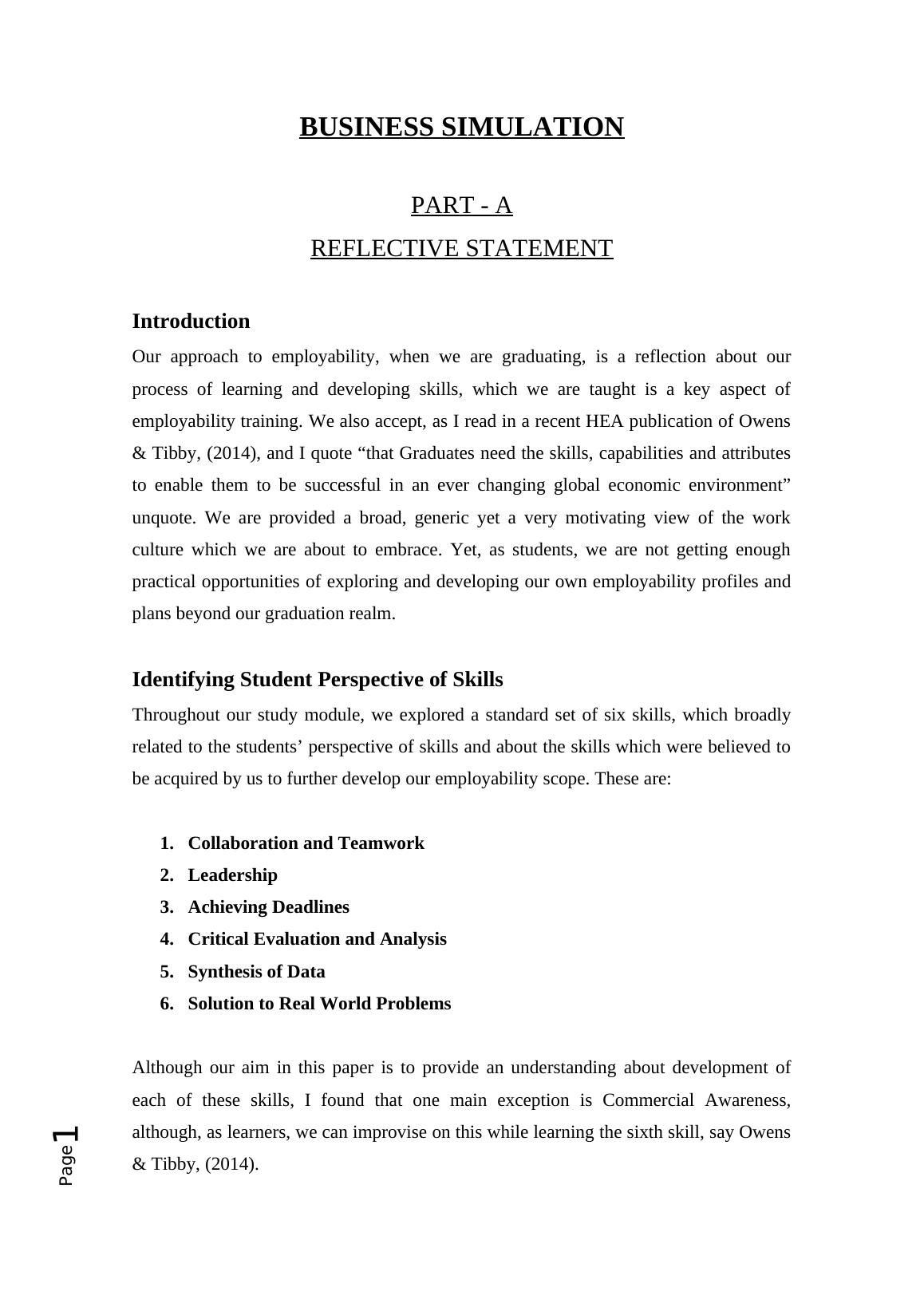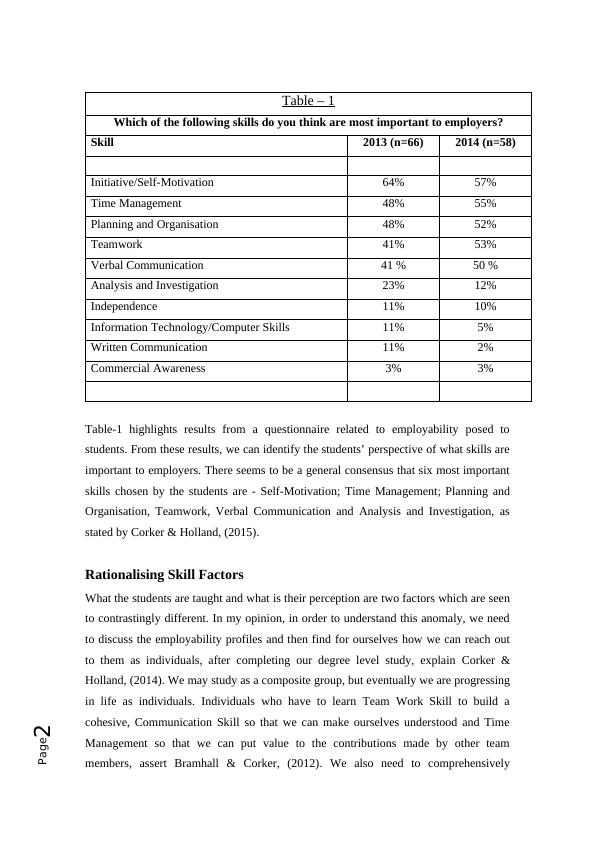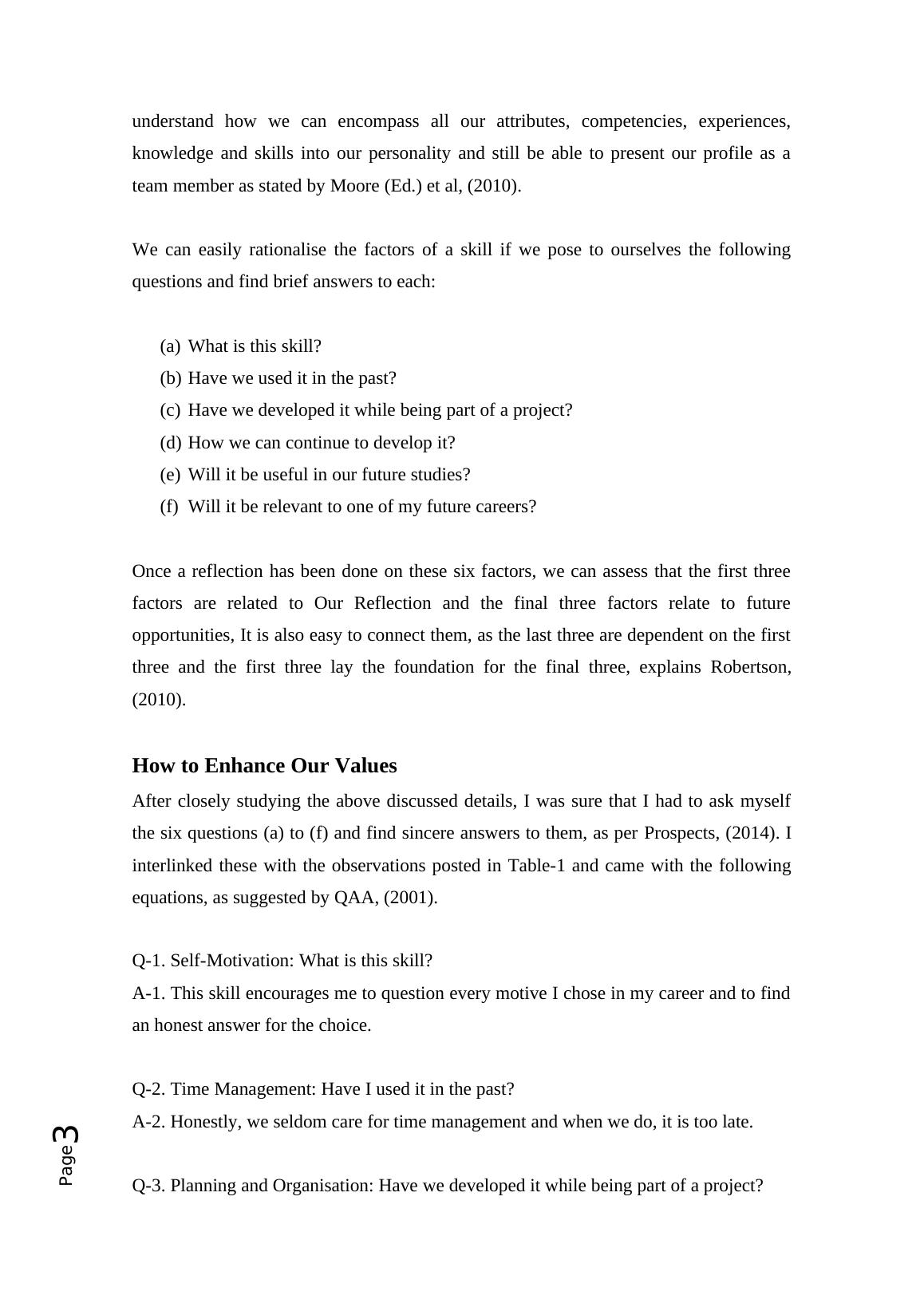Reflective Statement on Employability Skills and Rationalizing Skill Factors
Produce a reflective statement on how participation in the simulation would help develop key skills recognized by employers.
13 Pages3380 Words63 Views
Added on 2023-01-16
About This Document
This reflective statement discusses the importance of employability skills and rationalizes the factors of each skill. It also explores the students' perspective on skills important to employers.
Reflective Statement on Employability Skills and Rationalizing Skill Factors
Produce a reflective statement on how participation in the simulation would help develop key skills recognized by employers.
Added on 2023-01-16
ShareRelated Documents
End of preview
Want to access all the pages? Upload your documents or become a member.




